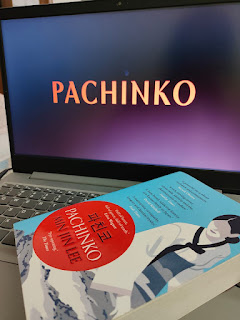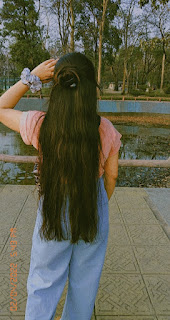P A C H I N K O
“𝑳𝒊𝒗𝒊𝒏𝒈 𝒆𝒗𝒆𝒓𝒚𝒅𝒂𝒚 𝒊𝒏 𝒕𝒉𝒆 𝒑𝒓𝒆𝒔𝒆𝒏𝒄𝒆 𝒐𝒇 𝒕𝒉𝒐𝒔𝒆 𝒘𝒉𝒐 𝒓𝒆𝒇𝒖𝒔𝒆 𝒕𝒐 𝒂𝒄𝒌𝒏𝒐𝒘𝒍𝒆𝒅𝒈𝒆 𝒚𝒐𝒖𝒓 𝒉𝒖𝒎𝒂𝒏𝒊𝒕𝒚 𝒕𝒂𝒌𝒆𝒔 𝒈𝒓𝒆𝒂𝒕 𝒄𝒐𝒖𝒓𝒂𝒈𝒆.”
Pachinko is a ride through history, a multi generational saga whose catalyst was a decision made by teenage Sunja as she accepts the offer of marriage from a gentle minister and follows him to Japan. Pachinko is a complex story about sacrifice, love and the untold stories in history.
I loved women in Pachinko - hard working, passionate, loyal. They were dealt awful hand, but they made the best of it. Sunja's love for Noa was so touching. I loved how the book kept the idea that Koreans who left their country did not have "homeland"; they didn't belong in Japan or in Korea. It was such a strong message.
This book is incredibly well researched as is evident through the incredible detail it provides of Korea under Japanese colonization and Koreans in Japan. Its writing is also quite beautiful at times, take this quote - “𝒂 𝒎𝒂𝒏 𝒎𝒖𝒔𝒕 𝒍𝒆𝒂𝒓𝒏 𝒕𝒐 𝒇𝒐𝒓𝒈𝒊𝒗𝒆—𝒕𝒐 𝒌𝒏𝒐𝒘 𝒘𝒉𝒂𝒕 𝒊𝒔 𝒊𝒎𝒑𝒐𝒓𝒕𝒂𝒏𝒕, 𝒕𝒉𝒂𝒕 𝒕𝒐 𝒍𝒊𝒗𝒆 𝒘𝒊𝒕𝒉𝒐𝒖𝒕 𝒇𝒐𝒓𝒈𝒊𝒗𝒆𝒏𝒆𝒔𝒔 𝒘𝒂𝒔 𝒂 𝒌𝒊𝒏𝒅 𝒐𝒇 𝒅𝒆𝒂𝒕𝒉 𝒘𝒊𝒕𝒉 𝒃𝒓𝒆𝒂𝒕𝒉𝒊𝒏𝒈 𝒂𝒏𝒅 𝒎𝒐𝒗𝒆𝒎𝒆𝒏𝒕.” However, its characters often fall flat.
In the first half of the book the characters are passive and are there while major historical events happen. Most action happens in the first hundred pages and then the book falls flat. The characters don’t make decisions beyond a point and if they don’t make decisions, we can’t see how they’ve grown. Thus, little character development also happens. Their aspirations and motivation weren’t very clear and I couldn’t really connect with them. I definitely liked the second half better as the characters became more and more active. However, characters that were there in the first half felt very foreign as they weren’t developed properly. For example, Mozasu’s son’s character was explored in the second half and his decisions relied a lot on his family and his family ties but I never really understood these life changing decisions he made because I never understood the emotion behind them.




Comments
Post a Comment